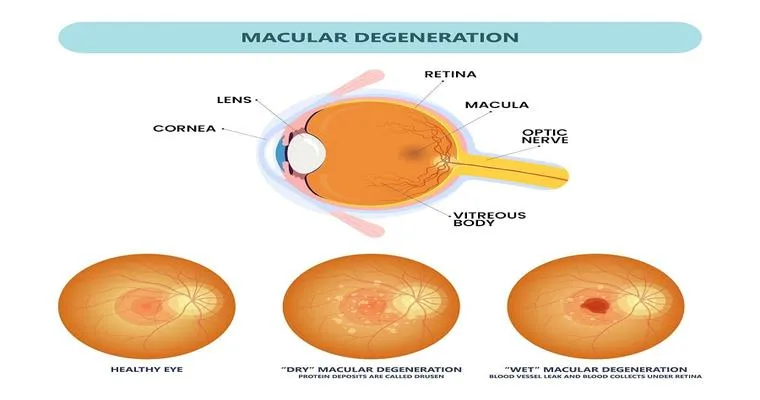Macular degeneration is a "progressive eye disease" that affects millions of people worldwide. As a leading cause of "vision loss", especially in older adults, it raises significant concerns about treatment options. One common misconception is that "laser treatment" can offer a definitive solution to prevent vision loss associated with this condition. However, it is crucial to understand that while laser treatment can be beneficial in certain cases, it does not stop the progression of macular degeneration or guarantee the preservation of vision.
Macular degeneration primarily occurs in two forms: dry and wet. The dry form is characterized by the gradual accumulation of waste material in the retina, leading to slow vision changes. In contrast, the wet form involves the growth of abnormal blood vessels beneath the retina, resulting in more severe and rapid vision loss. Laser treatments are often used to address the wet form by targeting these abnormal blood vessels. However, they are not a cure and cannot reverse the damage already done.
One of the primary reasons why "laser treatment" does not prevent vision loss is that it only addresses the symptoms and not the underlying disease process. Even after successful laser surgery, patients may continue to experience deteriorating vision due to the ongoing nature of macular degeneration. The disease can progress even if the visible symptoms are temporarily alleviated, leading to further complications and potential loss of sight.
Additionally, not all patients with macular degeneration are suitable candidates for laser treatment. Factors such as the stage of the disease, overall eye health, and individual response to previous treatments can significantly impact the effectiveness of laser therapy. For many patients, the dry form of macular degeneration cannot be treated with laser at all, emphasizing the need for alternative management strategies.
Moreover, lifestyle factors and ongoing eye care play a critical role in managing macular degeneration. Regular eye exams, a healthy diet rich in antioxidants, and proper management of chronic conditions such as diabetes and hypertension can help slow down the progression of the disease. Patients are encouraged to consult with their eye care professionals to explore comprehensive treatment options that may include "nutritional supplements", low vision aids, and other therapeutic interventions.
In conclusion, while macular degeneration laser treatment can provide relief for some patients, it is essential to recognize its limitations. It will not prevent vision loss in the long term, making it vital for individuals diagnosed with this condition to adopt a holistic approach to eye health. By understanding the nature of macular degeneration and pursuing a range of treatment options, patients can better manage their condition and maintain their quality of life.





